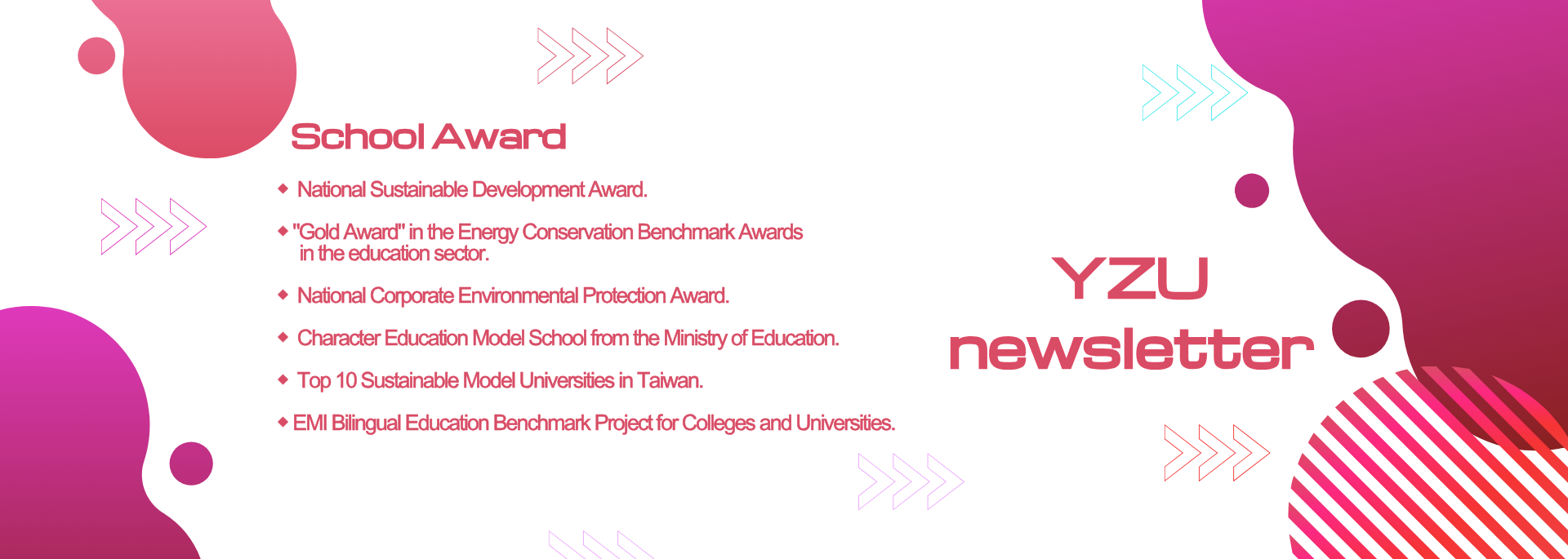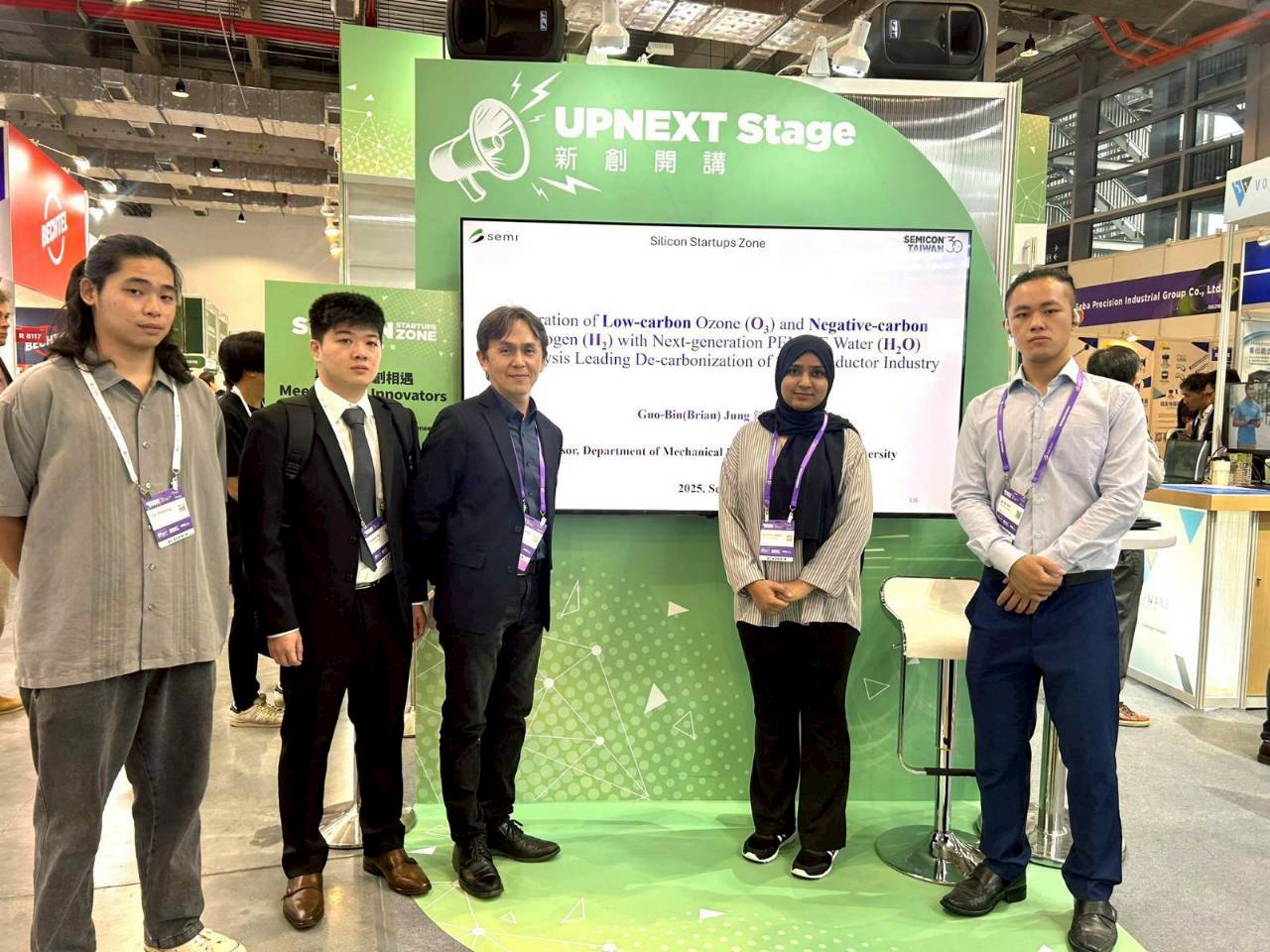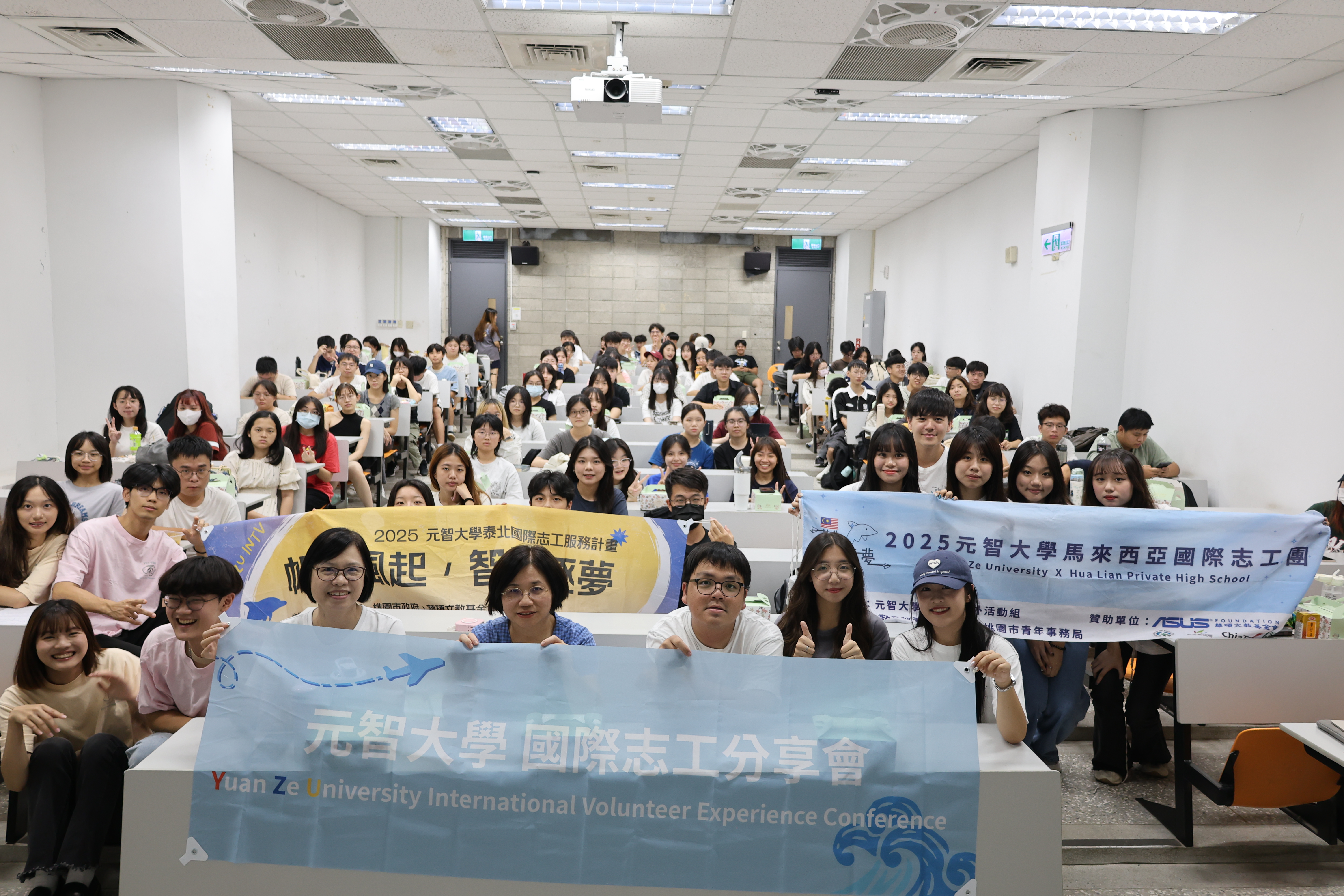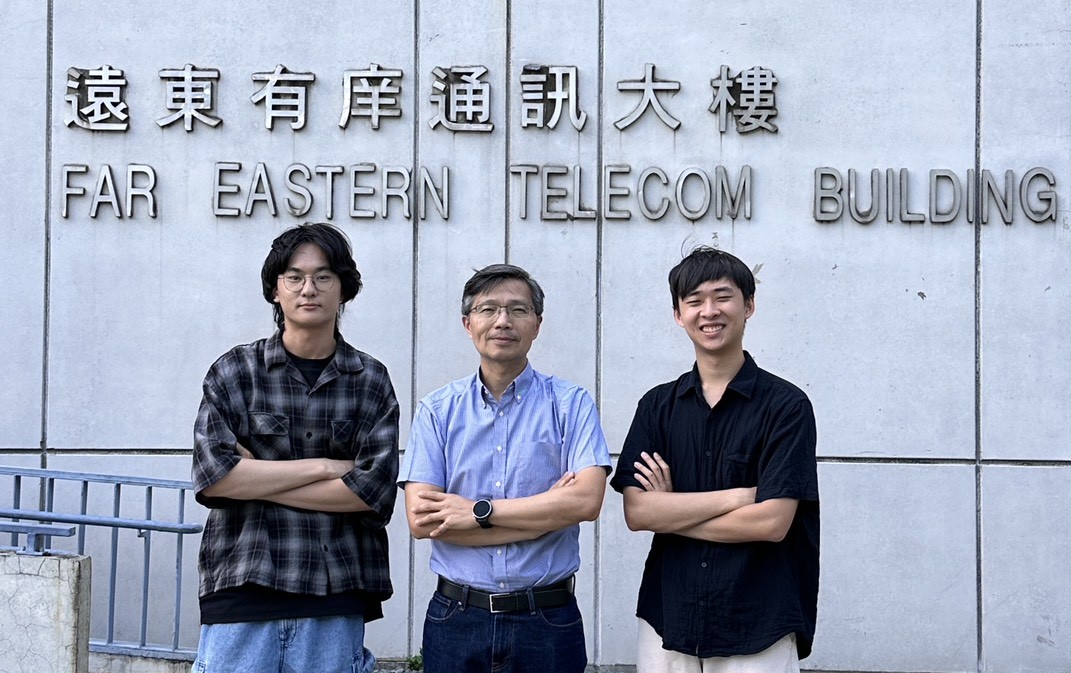The 30th SEMICON Taiwan 2025 was grandly held in September, featuring for the first time the “Silicon Startups Zone,” which brought together 17 startup teams from around the world. Among them, Professor Kuo-Bin Chung from the Department of Mechanical Engineering at Yuan Ze University stood out as the only invited representative from academia, delivering a keynote presentation that drew significant attention.
Professor Kuo-Bin Chung had long focused on low-carbon energy and semiconductor applications. His team successfully developed next-generation PEM electrolysis technology, capable of decomposing pure water into “low-carbon, high-concentration ozone” and “negative-carbon, electronics-grade hydrogen.” The ozone could replace traditional carbon-intensive processes and be applied in ultrapure water production, wafer cleaning, and the degradation of process wastewater. Meanwhile, the hydrogen could be widely used in advanced methods such as extreme ultraviolet lithography (EUV), chemical vapor deposition (CVD), and wafer surface treatment. This breakthrough not only effectively reduced carbon emissions but also aligned with Taiwan’s national strategic goals of achieving 60% localization of semiconductor components by 2030 and building a low-carbon supply chain.
Professor Chung noted that his team’s research results had already been tested in semiconductor factory operations, verifying the feasibility of advancing low-carbon processes using pure water. Looking ahead, the team planned to establish a globally competitive startup based on this achievement. The technology had already received the 21st National Innovation Award and became a significant example of Yuan Ze University’s research outcomes reaching the international stage.
At the “Silicon Startups Zone” of SEMICON Taiwan 2025, Professor Chung delivered a presentation titled “Driving Low-Carbon Semiconductor Development through Next-Generation PEM Electrolysis for Ozone and Negative-Carbon Hydrogen Production.” His appearance not only highlighted Yuan Ze University’s research contributions and connections to the global semiconductor ecosystem but also underscored Taiwan’s strong capabilities in sustainable low-carbon development and advanced process innovation.
 English
English  正體中文
正體中文 



